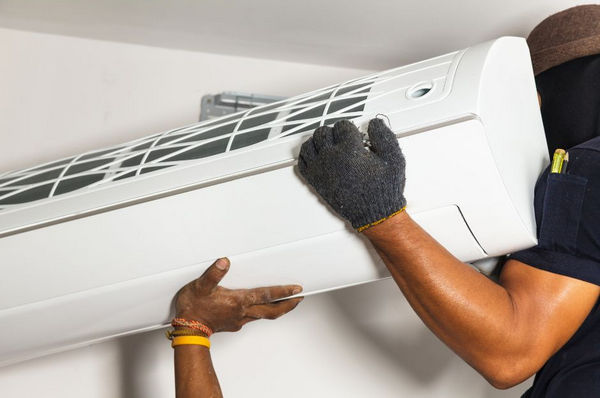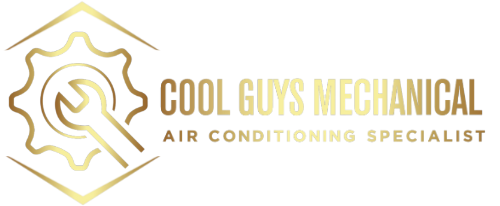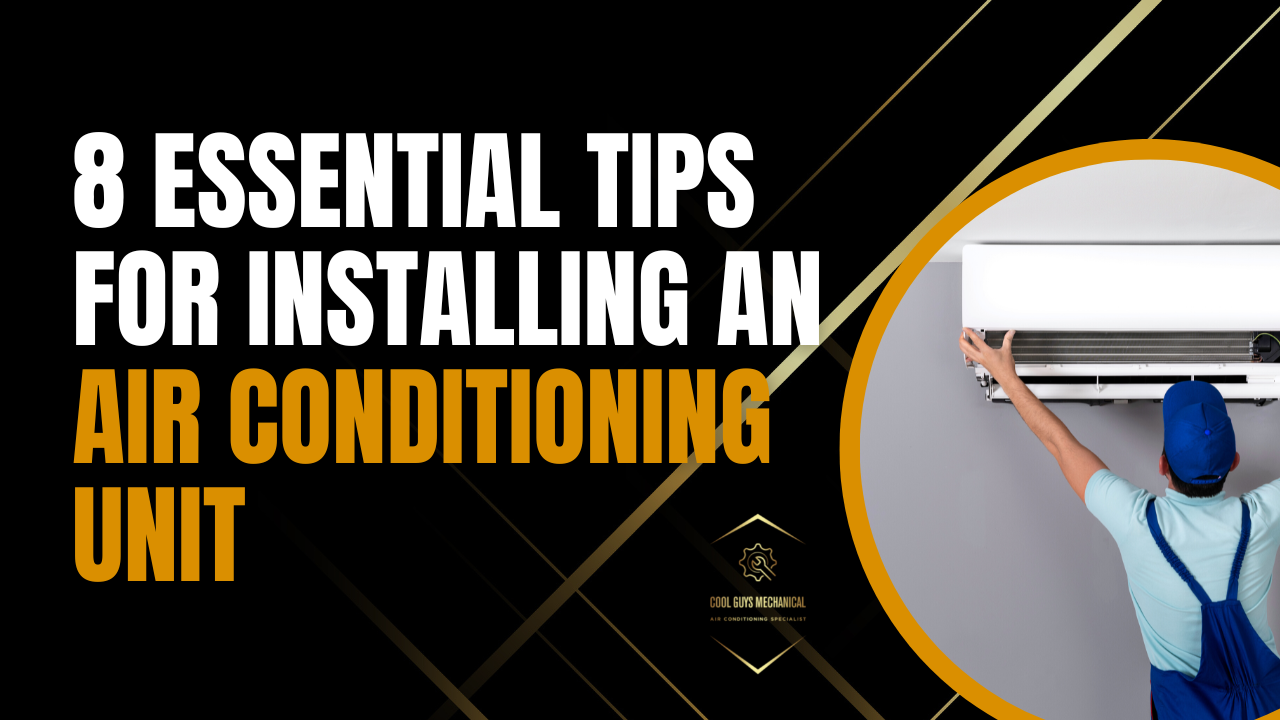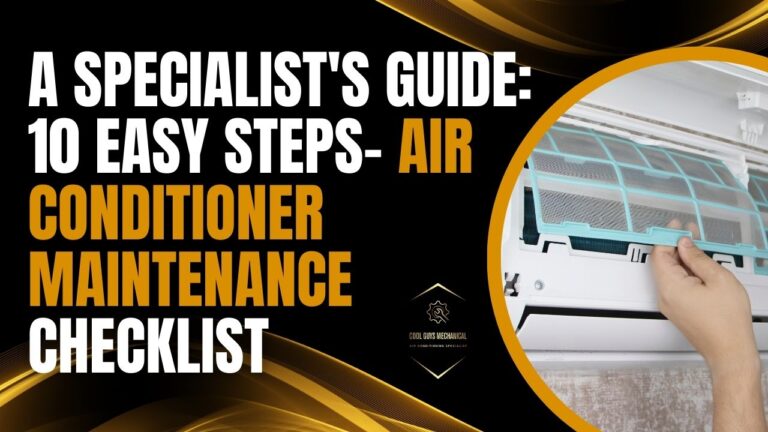Nowadays, an air conditioning system has become essential to every household or office space.
Nowadays, an air conditioning system has become essential to every household or office space.
People frequently buy air conditioners without conducting adequate research. As a result, they cannot acquire an air conditioner that meets their needs.
To ascertain that you have installed the most suitable air conditioning system for your home or workspace, it is best to create a list and compare the various models. To do this, you should consider three (3) things: the type of air conditioning system, the AC installation you need, and our expert tips to guide you through the process.
So, let’s get started.
Types of Air Conditioning System
There are numerous types of air conditioning systems and a wide variety of brands available. Below are some of the most common varieties with their respective advantages and disadvantages.
Portable Air Conditioners
Portable air conditioning systems are self-contained and mobile cooling systems that are ideal for single rooms. It typically sits on the floor and comes with an installation kit. Majority of its models have wheels for ease of transfer. It is a good alternative to window units.
Advantages:
- Does not require professional installation
- Cheaper price
- Mobile
Disadvantages
- Noisy
- Bulky
- Heavy
- Less efficient
- Window-Type Air Conditioners
Window-type air conditioners require a single equipment only and the indoor and outdoor units are integrated. A square hole is usually created in the wall or window to place half of the equipment indoors and the other half outdoors.
Advantages:
- Easy to install
- Space-saver
- Low price
Disadvantages:
- Noisy
- Less efficient
- Cools a single room only
Split-Type Air Conditioners
The split-type air conditioner is composed of two units: the indoor and outdoor units. The indoor unit is the source of heat or cooling, while the outdoor unit is connected via pipes.
A multi-split system operates similarly to a split-type, but the only difference is that the outdoor unit is connected to two or more indoor units.
Advantages:
- Simple installation
- Efficient
- Affordable
- Reasonable room temperature control
- Suitable for most homes
Disadvantages:
- Noisy external unit
- Immovable so you have to decide where you should permanently place it
- Duct System Air Conditioners
With a ducted air conditioning system, the indoor and outdoor units are subtly recessed above a false ceiling for protection and to maintain the aesthetic look of the space.
Advantages:
- Efficient
- Simple installation
- Reasonable room temperature control
- Affordable
- Suitable for most homes
Disadvantages
- Noisy external unit
- Immovable so you have to decide where you should permanently place it
Types of AC Installation You Need
Knowing what kind of air conditioning installation you need and its corresponding process is crucial. A professional AC specialist will discuss your needs and visit your home or workspace to determine the best course of action.
Residential Air Conditioning
Numerous factors must be considered in deciding the type of air conditioner you will need for your home. Some of these factors include the type of building and your proximity to your neighbors.
Commercial Air Conditioning
Your commercial air conditioning needs will greatly depend on the kind of business that you have. Restaurants and cafes require different air conditioning needs than offices, stores, or showrooms. Our air conditioning specialists will guide you through the process by inspecting and evaluating your space to ensure you have the best solution.
Expert Tips for Air Conditioning Installation

Now that we have laid out the foundation for you, make sure that you read these tips down to the end to give you the guidelines before having an air conditioning system installed at your home or workspace.
1. Consult your technician
Picking an undersized AC unit for your home will not efficiently cool your home and will only increase your monthly energy bills. On the other hand, an oversized system may cause it to short cycle and wear down your unit in the blink of an eye.
Hence, finding the perfect size is vital to consider during air conditioning installation. Ensure you’re hiring one of the best air conditioning companies because they visit your home and measure the room size to help you pick the suitable AC unit for your needs.
2. Choose the right type of AC unit
Central air conditioning systems come in two variants. The most typical is a split system, where the evaporator coil and air handler are indoors while the condensing unit is outdoors.
The second variant is the package system, where all three parts are installed in the exact location. Often, the box is positioned nearby on the ground or the roof and is immediately connected by the ducts.
Unlike package systems, which are typically only utilized in commercial buildings, split systems are more economical, quiet, and practical.
3. Choose the right size
Ensure the AC unit is the right size and can be put in the intended area easily. The best air conditioner for your home can be chosen with the help of a competent provider of air conditioning installation Honolulu. They will assess the area, get the dimensions, and guide you in acquiring an AC unit for your home or commercial space.
Below is a guide to different AC sizes that you will need to cool a particular area of your space.
Room Type | Area | AC System Size |
Small areas (e.g., bedroom, study, small lounge, small kitchen, small office) | 10-25 sqm | 2.6 kW |
Medium-sized (e.g., mid-size lounges, kitchens, bedrooms with ensuites, small rooms with high ceilings, and offices) | 25-35 sqm | 3.5 kW |
Large bedroom (bedroom with ensuites, mid-size lounges, and bedrooms with high ceilings, offices, and large kitchens) | 45-60 sqm | 5-6 kW |
Large open floor plan areas, large lounges, offices, and small shops | 60-80 sqm | 7-8 kW |
4. Consider the durability
In choosing a durable air conditioning unit, one should look into this factor; that it won’t require frequent maintenance or replacement.
You can do this by conducting your own research or consulting with an air conditioning specialist or expert. They will help you compare various brands and models and guide you toward the most robust AC system. With durable AC units, it will save you money in the long run. On a side note, the system should be covered by an active warranty.
5. Consider energy efficiency
It is best to check an air conditioning system’s seasonal energy efficiency ratio (SEER) before buying it.
SEER rating is the cooling capacity over the energy used in the same period. In modern central air conditioning systems, the minimum SEER you will see is 13. However, this value can go as high as 24. The higher the rating, the higher the energy efficiency of the air conditioning system.
6. Inspect your current ductwork
Get your current ductwork evaluated before installing an air conditioning system.
For a new air conditioning system, it may be necessary to make modifications since not all ducts can withstand the increased airflow. Adding or modifying ductwork can be pretty expensive, costing you thousands of dollars.
Split-ductless systems are frequently a superior option for homes without ductwork.
7. Perform regular maintenance
Routine maintenance is the most straightforward approach to keep your air conditioning system fully functional and avoid costly repairs.
Even though you can perform your AC inspections and maintenance, the tendency is you risk overlooking essential elements that only a trained AC specialist can identify.
Moreover, only air conditioning experts have the necessary licenses to perform specific tasks such as adding a refrigerant.
You can, however, examine the air conditioner’s parts, remove dust and dirt, and replace filters on your own.
8. Hire highly-qualified professionals
An air conditioner installation is not an ordinary daily chore you can do whenever you want. Although conceivable, most households lack the necessary skills to complete and safely complete the job.
Hiring reputable experts is a preferable choice in light of this. When hiring a company, request references, certifications, and insurance from them.
Final Thoughts
If you want your air conditioner to work robustly and efficiently for an extended period of time, ensure that you are choosing the right size and a durable brand, and consider energy efficiency. Subsequently, ensure that your current ductwork befits the requirement of your new air conditioning system and that it is routinely maintained.
References:










